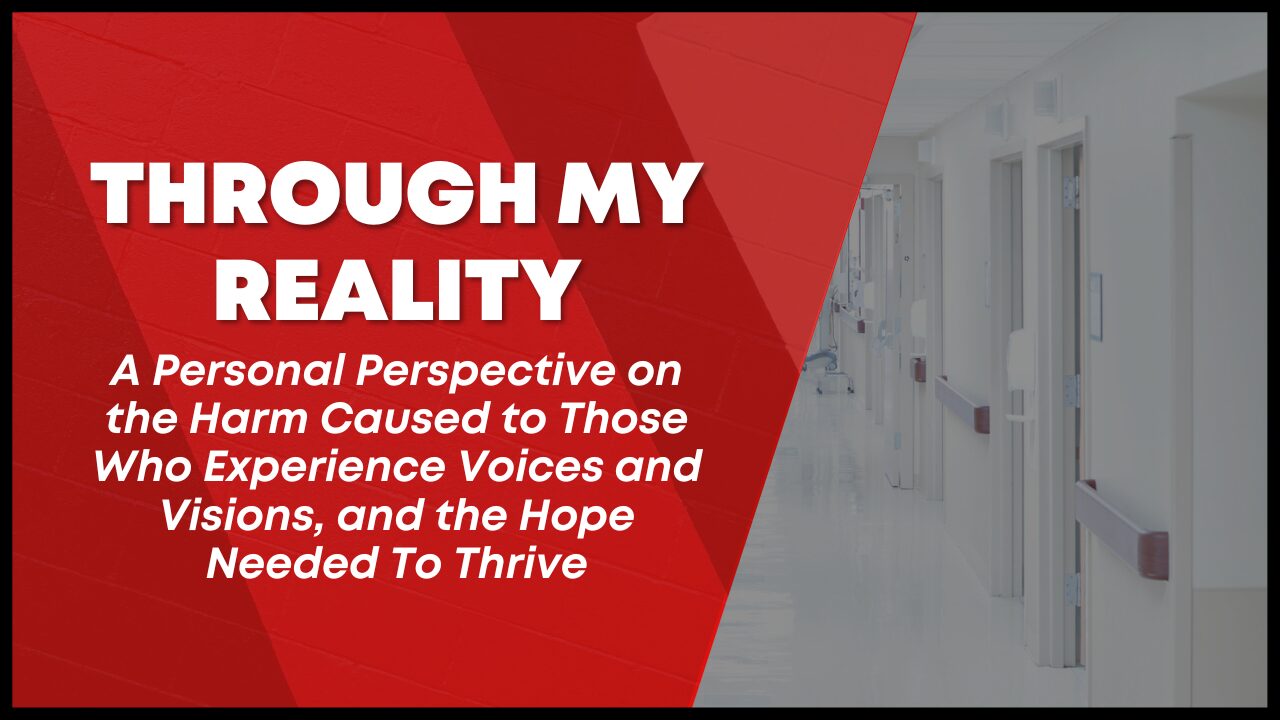Written by Paige Martin (she/they)
Read the PDF version of this blog here >>
One of the most meaningful connections I’ve experienced came from a simple cat-stacking game. This game took place in an unexpected place, my local behavioral health unit. While I was being held involuntarily, scared and hopeless, my counselor arrived with this game, and we talked. She knew I loved cats, and she knew I felt alone. She took the time to meet me where I was. There is an online saying I have heard shared that says, “To be loved is to be seen”. In that moment, I felt seen. I was at my worst, and this counselor still saw me as a whole person. She didn’t see me as a problem to be fixed; she simply knew I liked cats and wanted to make sure I was okay. That connection is a huge reason why I am still here.
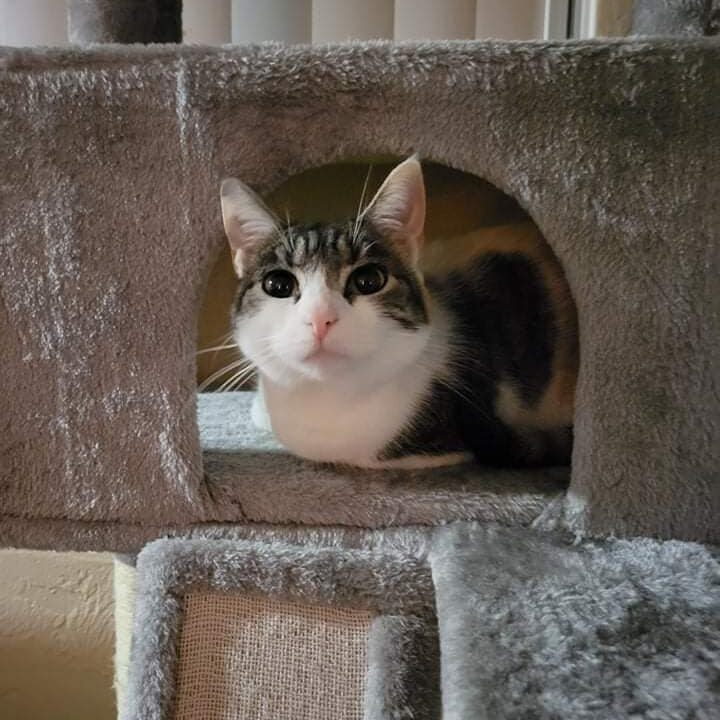
I have two cats Pepper (pictured above) and Mike Meowski (pictured below)
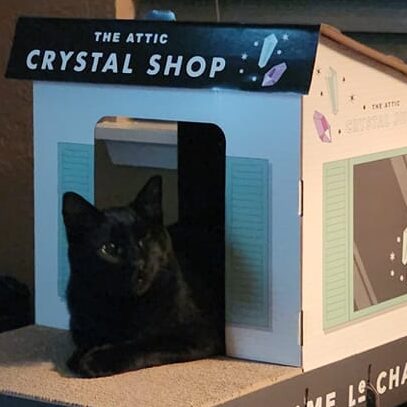
When I entered my third year of college, I started seeing the first signs of what I know now was my first episode of psychosis. I was terrified of my new reality. It was filled with voices, visions, and beliefs that others didn’t see, hear, or understand. The symptoms I was experiencing were new to me and my family alike. None of us had any tools or strategies for this. All the knowledge I had was from the media, which had me believe I was a danger, and my life as I knew it was over.
I am very thankful to have a family that tried their best to care for me, but I learned quickly that most professionals and people in the community didn’t. I needed help, but I didn’t know where I could go. I learned the hard way that speaking truthfully about my voices and visions would have me put into the hospital. Where I would be held in a room with nothing more than a cold plastic mat on the floor, with bright fluorescent lights that made my symptoms much stronger.
After my first involuntary hold, I was referred to my first psychiatrist. Who would see me for 15 minutes, and I would leave with a handful of new meds to try. Each new medication seemed to give me a new side effect, which led to other prescriptions to handle the side effects. It was a roller coaster, and I didn’t believe there was a way off.
I don’t have memories of small portions during this time. I am still unsure if this was due to trauma or an effect of one of the many medications I was prescribed. I do know that I had to rely on others constantly. I couldn’t be left alone. I do remember vividly that my brain felt empty. Before this, I was a person who would ask endless silly “would you rather” questions if it got a little too quiet. I haven’t ever been known as a quiet person. Now, I would sit silently, and when asked about it, I couldn’t even reply. There was nothing, no internal monologue, no ideas bouncing. It was as if the only thing I could feel was fear or numbness.
One day, my psychiatrist mentioned a program that could be a good fit. This was the Early Assessment and Support Alliance, or EASA. This program gave me the support and care I needed while navigating through my experience with symptoms of psychosis. The people I spoke to about my voices and visions never seemed scared of what I said, which was something I had never experienced. They never scoffed or looked at me in ways that made me feel like I wasn’t worth the effort. They were there for me 24/7. They also had a hotline I could call when I needed support during non-business hours.
I had a new psychiatrist in this program, too. They met with me for the full hour, listening to every experience I would share. After I would speak, they would take their time explaining the medications I was on and the steps to take with any choice I wanted, whether it be trying a new medication or wanting to take one out of my system.
I didn’t think it would be possible to live the life I once saw for myself. But every person I met in this program believed in me and told me I would. They said it might look different, but I was capable of achieving what I wanted for my life. Before this program, I had no hope for the life I wanted. I was overhearing my family discuss the options of in-home care. I was locking myself in my home, spending every minute and hour in fear. Meanwhile, this program believed in me. They taught me strategies to make certain symptoms manageable, and they had classes for my family to attend, which was extremely helpful in giving them the tools to start understanding how they can best support me.
So in that moment when I saw my counselor arrive in the behavioral health unit with the cat stacking game. I felt seen. I felt understood. I wanted to see the future they believe I could have.
It was a lot of work. The biggest gift that I was given was the resources and support to help change my view of my voices & visions. I began to understand that I can have a different reality with my additional voices and vision. They are not evil as I once believed. Rather than ignoring them, medicating myself, or shutting down completely to fear, I talked with them. I started questioning them and speaking to them with kindness and boundaries when needed. Things were different then. I began to change my medication plan with my psychiatrist and slowly started to regain joy and life.
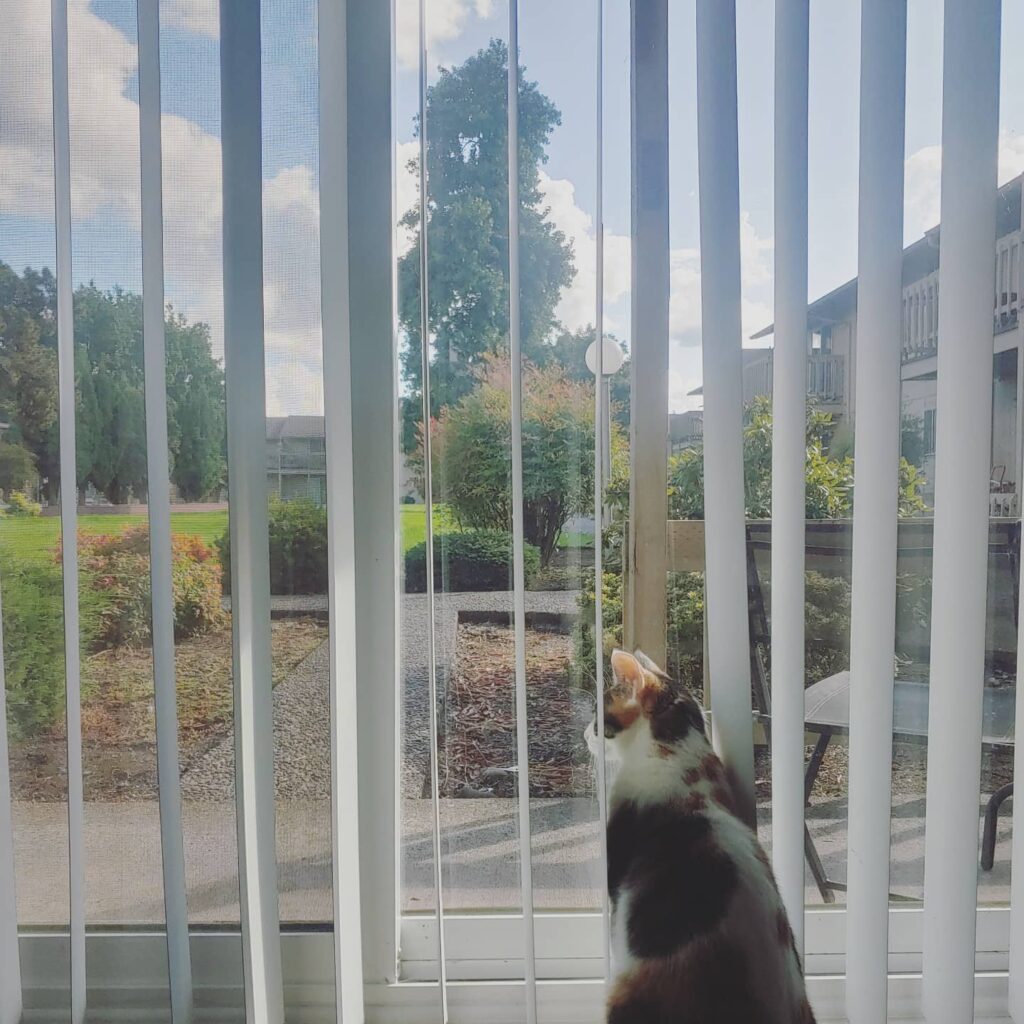
There was a time where I closed all my blinds and covered them up completely, refusing to look outside my home. This was the day I opened them back up.
To this day, I have moments where things are hard and my symptoms are worse. That’s where the knowledge I learned from peers, counselors, and professionals shines. I know what I can do to manage a troubling moment and make that moment in time a bit better. I understand that these rough moments will not last. I will get through it again as I have time and time again.
If there is one thing I would like to share with those who are providing or caring for those experiencing symptoms of psychosis, believe in them. Listen, learn, and take the time to understand the resources in your area that might provide the support they need.
If you are experiencing similar situations, keep going. It’s scary and it’s so very hard. You will most likely meet people who treat your existence as a ‘problem’ and won’t take the time to understand you as a whole human. But here’s the thing, you are human and this is your reality. You are not a problem, and you are not someone to fear or look down on. Find the people who understand that, I promise, they are out there. Find gentle ways to care for yourself each day.
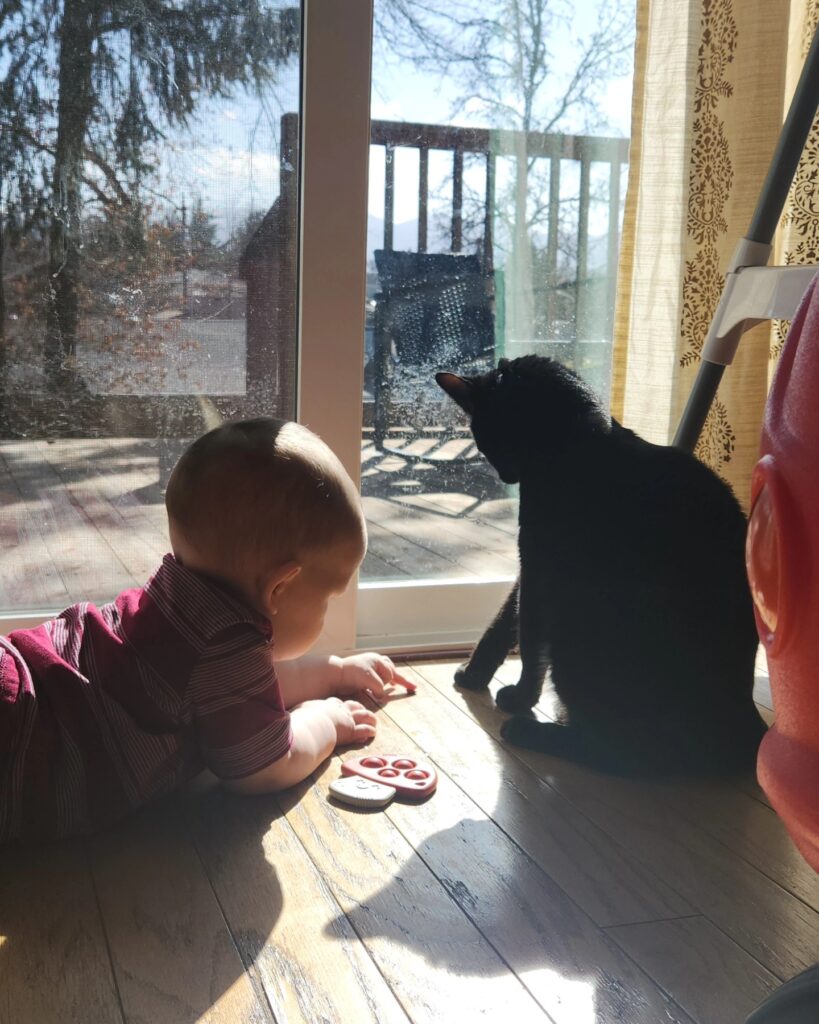
Today I live a very fulfilling life with my family. Which now includes my child! Pictured above with Mike.
I have included a handful of resources below that were helpful in my journey. I hope they will help yours as well.
- Psychosis: Mental Health First Aid Guidelines
- These guidelines are for providing mental health first aid to a person who is negatively impacted by their experience of psychosis.
- Self-help guide to talking with voices
- Ideas for people who hear voices and want to try engaging in dialogue with them
- Early Assessment and Support Alliance
- EASA provides information and support to young people experiencing symptoms of psychosis for the first time.
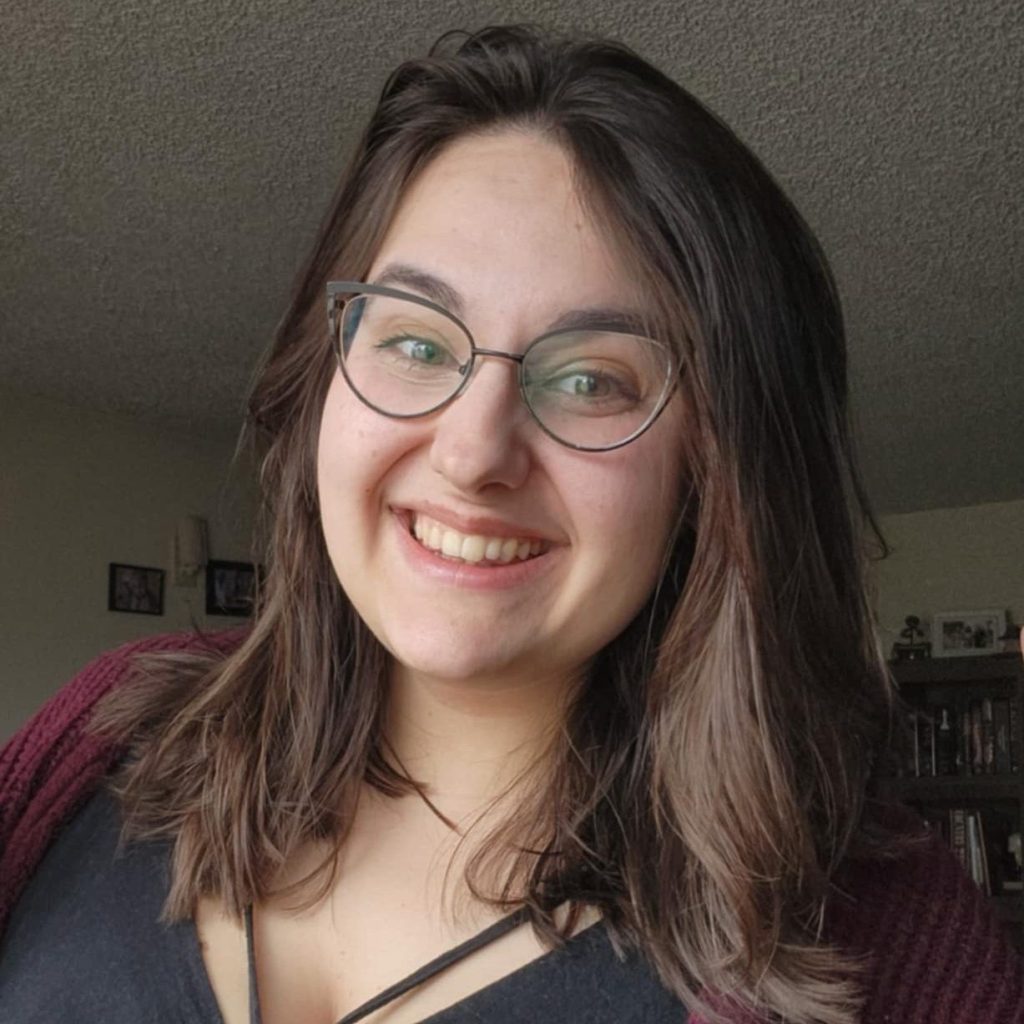
Written by Paige Martin (she/they)
Paige Martin (she/they) is the Communications & Technology Coordinator at Youth MOVE National (YMN). Before her work with YMN, Paige pursued an education degree and has had the honor to teach (and learn from) both children and youth of all ages; this experience has allowed her to share first-hand insight and knowledge of the issues youth are facing in our systems. Paige’s lived/living experiences and passion for uplifting voices and stories drive her in her day-to-day work! They are a fierce advocate for youth and young adults who have experienced and are experiencing First Episode Psychosis. In her free moments, she enjoys learning new skills like sewing or cooking a new recipe she saw on Tiktok.

